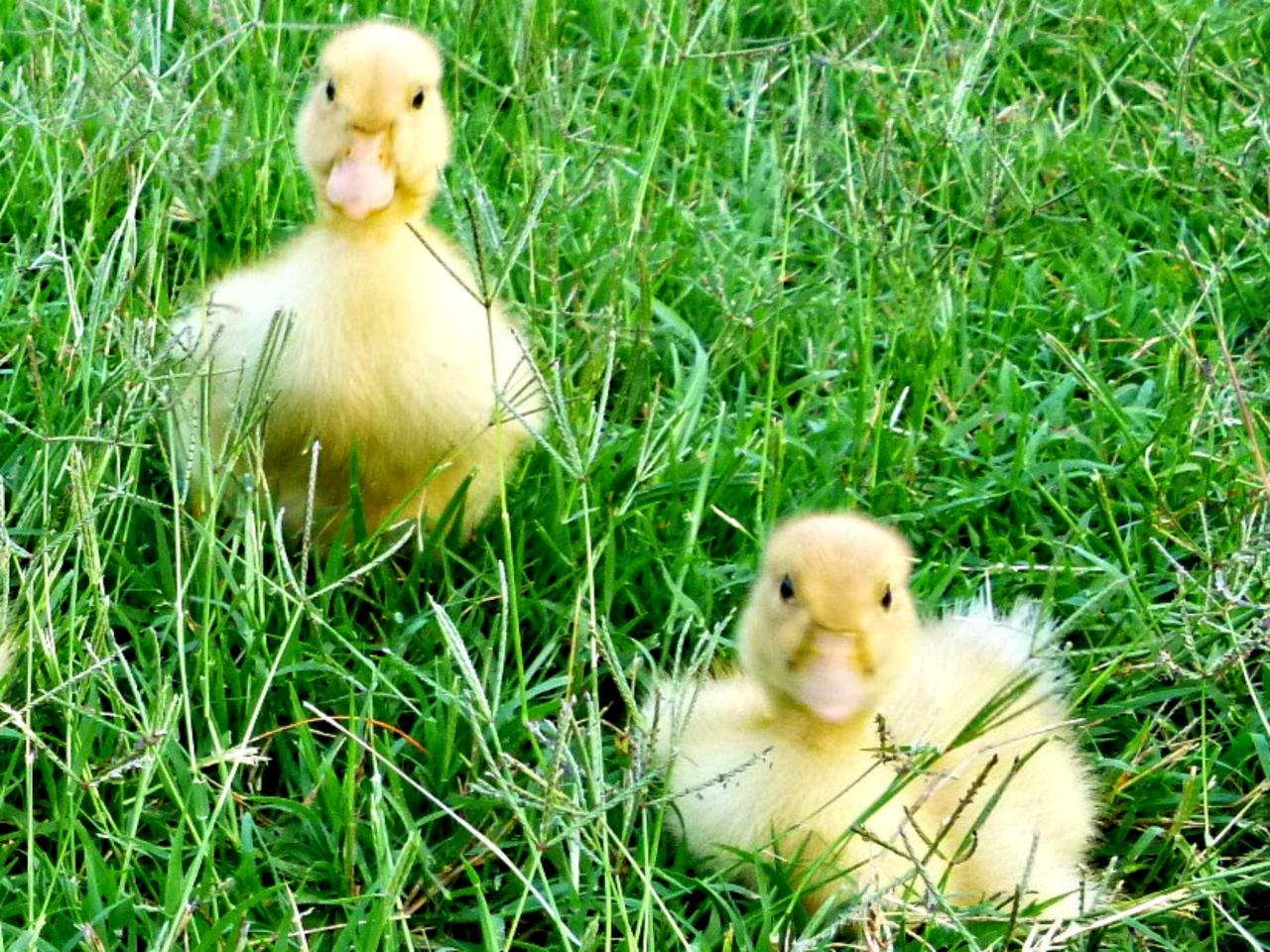
A Comprehensive Guide to Nurturing Baby Ducklings
Introduction
Baby ducklings, with their adorable waddling and fluffy feathers, are a captivating sight. However, caring for these delicate creatures requires a specific understanding of their needs and a commitment to providing them with a nurturing environment. This comprehensive guide will provide you with all the essential information you need to ensure the well-being and healthy development of your baby ducklings.
Housing and Environment
- Brooder: For the first few weeks of life, ducklings require a warm and enclosed brooder. This can be a cardboard box or a plastic bin lined with soft bedding, such as towels or shredded paper.
- Temperature: Ducklings are highly sensitive to temperature fluctuations. Maintain a constant temperature of 90-95°F (32-35°C) for the first week, gradually decreasing it by 5°F (2.8°C) each week until they reach 70°F (21°C).
- Ventilation: Ensure adequate ventilation to prevent ammonia buildup and respiratory problems. Place a few small holes in the brooder, but avoid drafts.
- Water: Provide a shallow dish of clean water at all times. Ducklings need access to water for drinking and bathing.
- Bedding: Keep the bedding clean and dry. Change it regularly to prevent bacterial growth.
Feeding
- Diet: Ducklings require a high-protein diet. Feed them a commercial starter feed specifically formulated for waterfowl.
- Feeding Schedule: Feed ducklings frequently, every 2-3 hours during the day. As they grow older, gradually reduce the frequency of feedings.
- Water: Always provide access to clean water.
- Grit: Ducklings need grit to aid in digestion. Offer them a small dish of grit or crushed eggshells.
Health and Care
- Vaccinations: Consult with a veterinarian about necessary vaccinations for your ducklings.
- Deworming: Regularly deworm your ducklings to prevent parasitic infections.
- Bathing: Ducklings enjoy bathing. Provide them with a shallow dish of water for supervised bathing.
- Foot Care: Trim their toenails regularly to prevent overgrowth.
- Feather Plucking: Monitor your ducklings for feather plucking, which can indicate stress or health issues.
- Common Health Problems: Be aware of common health problems in ducklings, such as diarrhea, respiratory infections, and duck virus enteritis. Contact a veterinarian promptly if you notice any symptoms.
Socialization and Enrichment
- Companionship: Ducklings are social creatures and thrive in the company of other ducklings or adult ducks.
- Toys: Provide ducklings with toys to stimulate their minds and encourage play.
- Outdoor Time: Once ducklings are fully feathered and old enough, gradually introduce them to outdoor time in a secure enclosure.
- Handling: Handle ducklings gently and avoid excessive handling.
Transitioning to Adulthood
- Feathering: Ducklings will start to develop their adult feathers around 6-8 weeks of age.
- Diet: Gradually transition ducklings to a maintenance diet formulated for adult waterfowl.
- Housing: As ducklings mature, they will require a larger enclosure with access to a pond or water source.
- Independence: Ducklings will become increasingly independent as they approach adulthood. Allow them to explore their surroundings and interact with other ducks.
Additional Tips
- Observe your ducklings: Pay attention to their behavior, appetite, and overall health.
- Keep records: Maintain a record of vaccinations, dewormings, and any health issues.
- Seek professional advice: Consult with a veterinarian or experienced waterfowl breeder for guidance and support.
- Be patient: Caring for baby ducklings requires patience and dedication.
- Enjoy the experience: Raising ducklings can be a rewarding and enjoyable experience.
Conclusion
Nurturing baby ducklings is a fulfilling endeavor that requires a comprehensive understanding of their unique needs. By providing them with a warm and supportive environment, a nutritious diet, proper health care, and opportunities for socialization and enrichment, you can ensure their well-being and witness their transformation into healthy and thriving adult ducks. Remember to observe your ducklings closely, seek professional advice when necessary, and enjoy the precious moments of caring for these adorable creatures.
